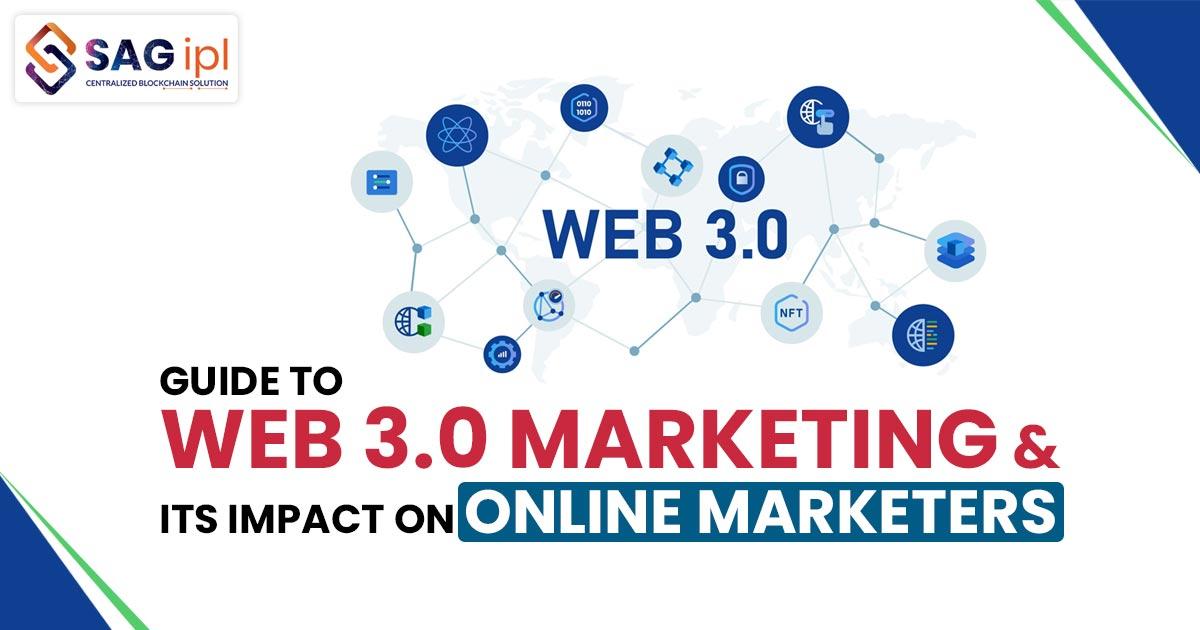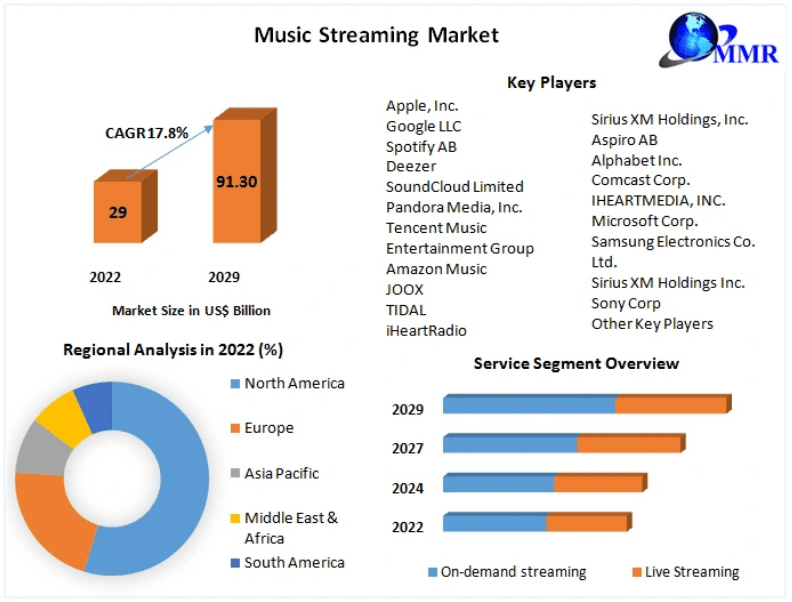The World Wide Web has evolved over time, changing how we use the internet. The latest stage of this evolution is Web 3.0.
Personalization is a key challenge for digital marketing leaders, according to Gartner. They can use Web 3.0 to gain more insights into customer needs and preferences. Web 3.0 provides relevant customer data, which can help digital marketers improve their targeting and offer more customized services.
But what is Web 3.0 and how does it affect digital marketers? In this article, we will explain this technology and its potential impact on digital marketing. First, let’s look at how the web has changed over time.
How the Internet Has Changed Over Time from Web 1.0 to Web 3.0.
The internet has changed a lot in the last 30 years. It started with Web 1.0, where the web was mainly for sharing text-based information. Then it moved to Web 2.0, where we can share and interact with rich media content (such as audio, video, and images). Now we are entering Web 3.0, where the web is more decentralized, secure, and intelligent.
However, Web 3.0 is still a new concept and it may take some time before it is fully adopted. The transition from Web 2.0 to Web 3.0 could take several years.
As a B2B software marketer, you have an opportunity to benefit from this trend and become one of the Web 3.0 pioneers. You can start by learning more about blockchain technology, which is the foundation of Web 3.0.
The Journey from Web 1.0 to 3.0
The web has gone through three different stages since the early 1990s. Each stage has changed how we use the internet and what we can do with it.
-
Web 1.0 (a read-only web): This was the first stage of the web, where the web pages were static and only contained HTML code. The web pages could be viewed with a browser, but not edited or changed. The main purpose of this stage was to publish information and make it accessible to many people.
-
Web 2.0 (a read-write web): This was the second stage of the web, where the web pages became more interactive and collaborative. With the emergence of blogs, wikis, and social media sites, web users could not only read content but also create and share it online.
-
Web 3.0 (a read-write-interact web): This is the current and ongoing stage of the web, where web pages are more intelligent and adaptable. With the use of new technologies, such as the semantic web, natural language processing, and machine learning, the web can understand and respond to human and machine requests. Web 3.0 is considered to be the future of the internet.
What is Web 3.0?
Web 3.0 is the new version of the internet that is more decentralized, interactive, and personalized. It lets users have more say over how their data and privacy are handled. It also has new features and improvements, such as a better interface, more security, and more privacy. Web 3.0 makes it simpler for users to access and share the information they want.
Importance of Web 3.0: What Features to Expect
Web 3.0 is the new generation of the internet that aims to make it more effective and efficient by using the huge amount of user data on it.
It will be easier and faster for web users to find the information they need and share it with others. Also, digital marketers will be able to follow the latest B2B marketing trends and stay competitive.
Some of the main features of Web 3.0 are:
- Decentralization: Web 3.0 is not controlled or regulated by any central entity or authority. It is a network where each internet user is in charge of their own data and content.
- Blockchain Technology: Blockchain is a technology that enables secure, transparent, and unchangeable transactions. Blockchain could change the way people do online transactions, making them much safer.
- Enhanced Privacy and Security: Web 3.0 offers more privacy and security for internet users. With decentralization, there is no single point of vulnerability. Also, Web 3.0 allows each internet user to decide who can see their data and what they can do with it.
How Will Web 3.0 Change the Way Marketers Do Digital Marketing?
Web 3.0 is transforming the digital world and challenging the traditional ways of marketing. B2B marketers will soon lose access to third-party cookies, which are essential for tracking and targeting online audiences. These cookies collect data on people’s online behaviors and preferences, which marketers use to create personalized and relevant content. Without this data, marketers will struggle to understand their audiences and deliver effective content.
Ways in Which Web 3.0 Will Impact Digital Marketing:
-
Data Collection and Privacy Will Change
Data security and decentralization are key features of Web 3.0, which will affect how marketers handle and use data. Marketing will require more creativity and innovation, as consumers will have more control over their data and privacy. Marketers will need to explore new methods of collecting data that are respectful and transparent to consumers.
-
User experience Will Improve
Web 3.0 will offer a more personalized and immersive internet experience, which will challenge marketers to adapt their digital marketing approaches. Marketers will have to deal with more decentralized and private data, which will limit their ability to track and target customers. They will also have to leverage blockchain and AR/VR technologies to create new ways of interacting with customers online.
-
Marketing strategies will need to be updated
As Web 3.0 changes the digital landscape, marketers will have to adjust their strategies accordingly. They will have to use different sources of user data, such as first-party cookies, blockchain transactions, and user-generated content, to target their audiences effectively. This will enable them to create more relevant and personalized content.
How B2B Software Marketers Can Prepare for Web 3.0
B2B software marketers will face new challenges and opportunities as Web 3.0 emerges. Here are some tips to get ready for the Web 3.0 era:
-
Stay Up to Date with the Latest Trends
Web 3.0 will introduce new trends that B2B software marketers should watch out for and adopt. For example, artificial intelligence will enable more personalized and automated marketing campaigns. To stay competitive and relevant, you should incorporate these trends into your marketing strategy.
-
Get Acquainted with Blockchain
Blockchain is a key technology for Web 3.0. It is a secure, transparent, and distributed database that records transactions. You can use it to build applications and platforms that will be part of Web 3.0. If you don’t know much about blockchain, you should learn more about it now.
-
Leverage Customer Data Insights
Data will be essential for marketing in Web 3.0. You should learn how to collect, analyze, and use buyer data to make better marketing decisions. Data will help you understand your customers’ needs, preferences, and behaviors.
The Future Ahead
Web 3.0 is the dawn of a new era for B2B software marketing. This new generation of the internet will offer new possibilities for marketers, from safeguarding user privacy to tapping into new data sources and measuring marketing campaigns across the digital-first buyer journey.
SAG IPL Web3 marketing services agency is here to offer you the moment to join the future’s internet with modern business techniques built using sophisticated tools to mark an opportunity to become a legend in the Web3 ecosystem. Under Web3 marketing services, we approach the clients by providing them with different services like using online marketing channels, such as SEO, and email, to aid the forms to reach, nurture, and transform their target audience. And other strategies like content marketing and PPC are also being practised. With the service, we assure you to get noticed by your desired audience. Contact us today and get a free quote!




